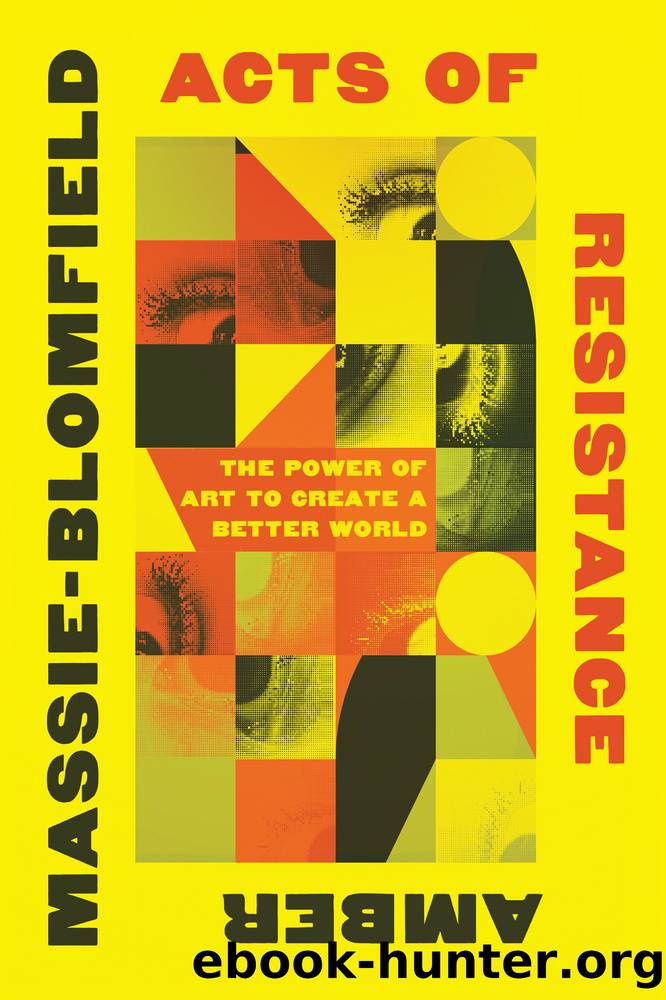Acts of Resistance by Amber Massie-Blomfield

Author:Amber Massie-Blomfield
Language: eng
Format: epub
Publisher: W. W. Norton & Company
The only footage Iâve been able to find of the production is a few grainy clips, captured by the filmmaker Pjer Žalica as part of a documentary called Godot Sarajevo. It shows a group of actors with real precision in their craft, a command of physicality and voice that contradicts the brutalised state of their bodies. The staging is haunting and beautiful: lacking electricity, the cast moves around in small pools of light from the twelve candles allocated for the performance.
In truth, the production is most remarkable not for its artistic merits, but for the fact it existed at all. But what does it mean to write that? Is it possible to divorce the value of an artwork from its real-world context? In her critical writing, Sontag had long wrestled with the moral responsibility of artists. Early in her career, she had celebrated form over function, in her famous essays âAgainst Interpretationâ and âOn Styleâ. Yet this position was not at odds with her admiration for artists willing to risk their lives to put their ideals into practice. The ethical standards of the artist infused their work, she believed, regardless of whether the art was explicitly political. In conversation with Tony Kushner in 1995, she distinguished between her work as an artist and her life âas a citizen, as a soulâ. The artwork may stand alone, but of its creator we should demand a moral position. âI believe in righteous action; I believe that one should do good.â She held that the writerâs place was on the front line and was cynical about pacifist positions that may so easily be a guise for complacency.
Sontag made a similar argument in her essay Camusâ Notebooks. Here, she recognised both a writerâs literary output and their moral actions in the world. Discussing Albert Camus, the existentialist writer who was active in the French Resistance, she says: âWhen an immensely gifted writer, whose talents certainly fall short of genius, arises who boldly assumes the responsibilities of sanity, he should be acclaimed beyond his purely literary merits.â She compares him to George Orwell, who fought in the Spanish Civil War, and James Baldwin, who played a prominent role in the American Civil Rights movement â writers who âessay to combine the role of the artist with civic conscienceâ. She explains, âWhat accounts for the extraordinary appeal of [Camusâ] work is beauty of another order, moral beauty, a quality unsought by most twentieth-century writers.â
From the beginning, Sontag knew that theatre was the only form fit for what she wished to express in Sarajevo. The constrained, closely observed circle of the stage, the fragility of the drama that played out upon it: it might well have been a synecdoche of the besieged city in which it stood, where personal narratives were amplified and global politics played out at a human scale.
More than that, though, Sontag wanted to create something âthat would exist only in Sarajevo, that would be made and consumed thereâ. In this sense, the production
Download
This site does not store any files on its server. We only index and link to content provided by other sites. Please contact the content providers to delete copyright contents if any and email us, we'll remove relevant links or contents immediately.
The Art of Boudoir Photography: How to Create Stunning Photographs of Women by Christa Meola(18625)
Red Sparrow by Jason Matthews(5472)
Harry Potter 02 & The Chamber Of Secrets (Illustrated) by J.K. Rowling(3677)
In a Sunburned Country by Bill Bryson(3542)
Drawing Cutting Edge Anatomy by Christopher Hart(3528)
Figure Drawing for Artists by Steve Huston(3451)
Harry Potter and the Prisoner of Azkaban (Book 3) by J. K. Rowling(3359)
The Daily Stoic by Holiday Ryan & Hanselman Stephen(3319)
Japanese Design by Patricia J. Graham(3174)
Make Comics Like the Pros by Greg Pak(2917)
The Roots of Romanticism (Second Edition) by Berlin Isaiah Hardy Henry Gray John(2916)
Stacked Decks by The Rotenberg Collection(2883)
Harry Potter and the Deathly Hallows (7) by J.K. Rowling(2724)
Draw-A-Saurus by James Silvani(2719)
Tattoo Art by Doralba Picerno(2668)
On Photography by Susan Sontag(2639)
Churchill by Paul Johnson(2584)
The Daily Stoic by Ryan Holiday & Stephen Hanselman(2575)
Drawing and Painting Birds by Tim Wootton(2510)
